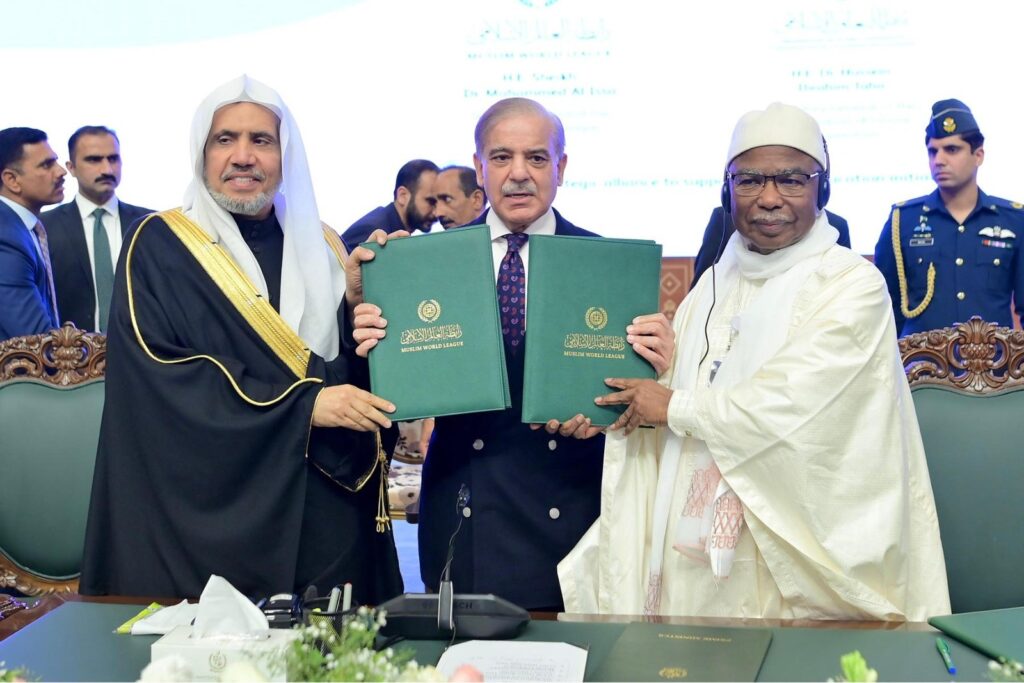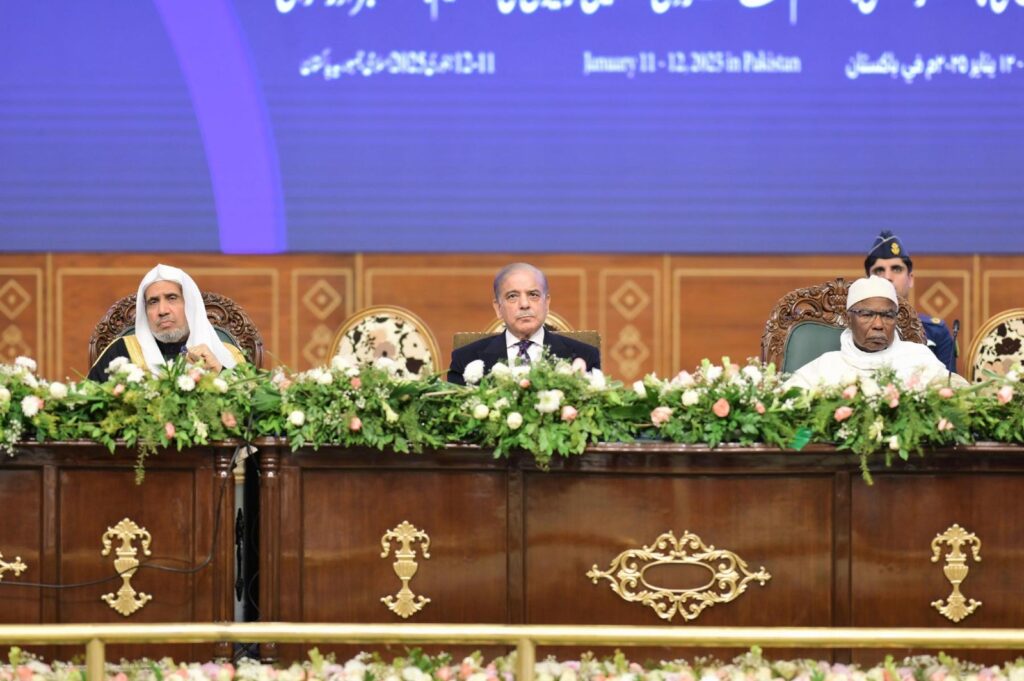Millions of young girls entering the job market
in the next decade will uplift their families
nations, and global economies
Associated Press of Pakistan

Islamabad: Prime Minister Muhammad Shehbaz Sharif has called on international organizations, philanthropists, and entrepreneurs to collaborate in creating sustainable opportunities for girls’ education. Speaking at the two-day International Conference on “Girls’ Education in Muslim Communities: Challenges and Opportunities” on Saturday, he emphasized the transformative potential of educated young women. “Millions of young girls entering the job market in the next decade will uplift their families, nations, and global economies,” the prime minister stated. He urged respect for women’s rights and the removal of cultural and social barriers to their ambitions.
Addressing Educational Disparities
PM Shehbaz highlighted that Pakistan faces significant challenges in girls’ education, with 22.8 million children out of school, including a large number of girls. He pointed out issues such as inadequate infrastructure, safety concerns, and entrenched societal norms that perpetuate this cycle of deprivation. During his tenure as Punjab chief minister, the premier introduced Danish schools to provide quality education to underserved rural communities. This initiative has since been replicated across Pakistan, paving the way for a more inclusive future.
Legacy of Women in Islamic and Pakistani History
PM Shehbaz celebrated the contributions of women in Islamic history, citing Hazrat Khadijah (RA) as an exemplary businesswoman and Mohtarma Fatima Jinnah as a key figure in the Pakistan Movement. He also acknowledged Mohtarma Benazir Bhutto as the first female prime minister in the Muslim world and Arfa Kareem as a technological prodigy. The prime minister praised the ongoing efforts of dynamic women leaders like Maryam Nawaz, who inspire social, political, and economic empowerment in Pakistan.

Government Initiatives for Girls’ Education
PM Shehbaz reaffirmed his government’s commitment to empowering youth through scholarships, vocational training, and skill-building in AI, cybersecurity, and other fields. He emphasized the Islamic teachings that highlight the pursuit of knowledge as a sacred duty for both men and women. He also announced the signing of the Islamabad Declaration, aligned with the United Nations Sustainable Development Goals (UNSDG), to reflect the collective aspirations of the Muslim world for advancing education.
International Collaboration
The conference, organized with support from Saudi Arabia’s King Salman and Crown Prince Mohammed bin Salman, brought together over 150 dignitaries, including ministers, ambassadors, and representatives from UNESCO, UNICEF, and the World Bank. OIC Secretary General Hissein Brahim Taha and Muslim World League Secretary General Muhammad Bin Abdul Karim Al-Issa stressed the importance of girls’ education for societal progress. Al-Issa emphasized education as an obligation for both men and women in Islam.
Ministerial Meeting: Shared Commitments
During a separate meeting with education ministers and officials from Muslim countries, PM Shehbaz expressed optimism about the outcomes of the conference. He shared Pakistan’s experiences in educational reforms and pledged collaboration with other nations to promote girls’ education. Representatives from Türkiye, Somalia, Malaysia, and Maldives lauded Pakistan’s initiative in bringing together Muslim nations to share expertise and promote female education.






















